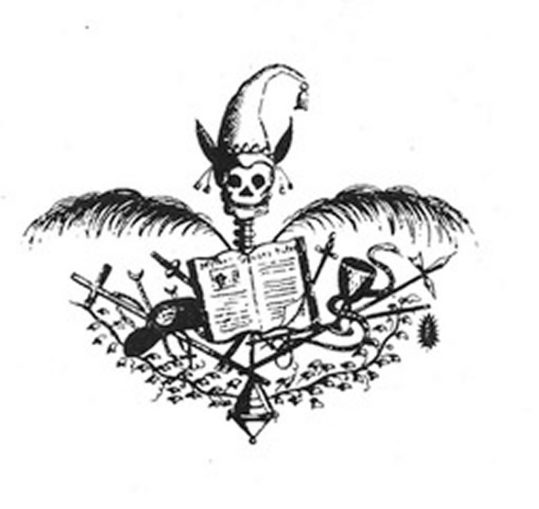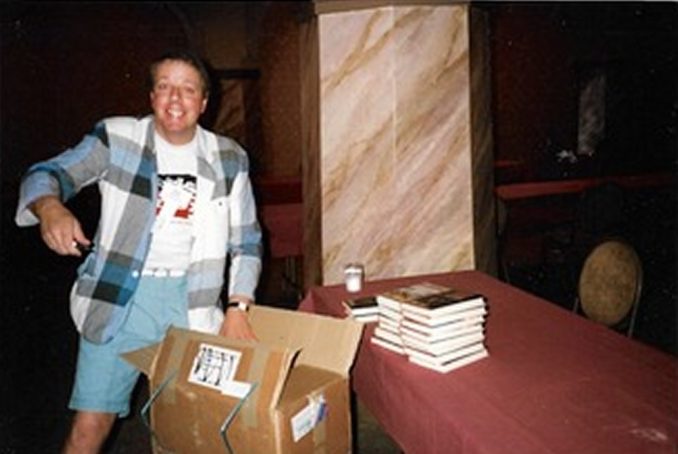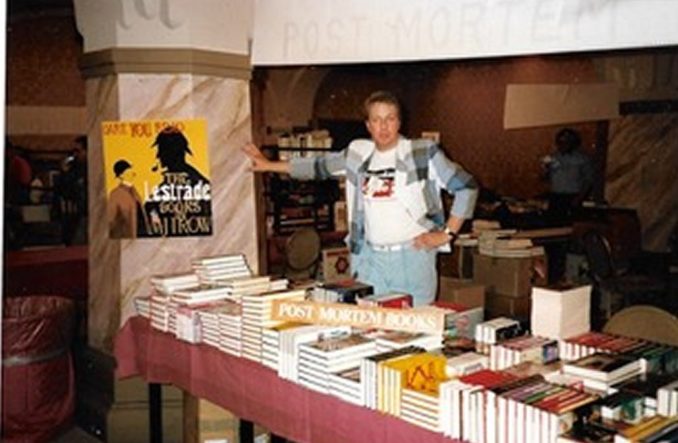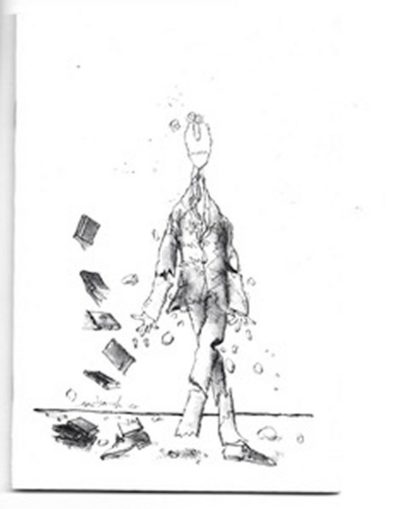
At the end of part 1 we left our intrepid teenager entering the portals of the famous Foyles Bookshop in the Charing Cross Road, London. Founded in 1903 initially selling secondhand books from a small shop in Cecil Court it quickly grew to become the world’s largest bookshop. It retained some unusual customer relations features in which a purchaser of a book would have to queue for an invoice, queue again at a central payment booth (very much like the old butcher’s shops) and then return to the original queue with the receipted invoice to finally take away the book. In this way no staff ever touched any money, possibly a hangover from the very first week of opening when the first person to be employed by the Foyle brothers ran off with the week’s takings. Christina Foyle now ran the show with her husband Ronald Batty and they were renowned for ensuring no staff were employed long enough to acquire any holiday rights or other benefits by dismissing them out of hand.
None of this was known to your naive young man excited at the prospect of earning a wage in what he thought was the epitome of bookselling excellence. I was sent down to the basement (which was ironically to become a feature of much of my book selling career) and met up with the woman in charge of buying secondhand books. She sat by a small wall opening to which customers would bring their unwanted items. I and two others worked in the basement behind her sorting out the books into their various categories, eventually trolleying them up to the respective departments. The job wasn’t demanding but I loved being surrounded by both secondhand and new books (when I could escape from the basement) and in the evening I would take a secondhand book – with the permission of the manager – home to read on the train. And return it on the morrow.
One day the store detective took a wander through the department and left without comment. We shrugged and got on with our work. As I left that evening I was stopped by the detective and my bag searched. Hey presto! A copy of Henry Miller’s Tropic of Capricorn was found. Hauled up to the general manager’s office I was sacked despite my pleadings of innocence. Six weeks had been my total work experience and my return home and the news of my sacking that evening was, as you might expect, not received with equanimity by my parents.
With tension building in the family home even I could see that I needed to get another job, pronto. I dug out an ancient A to Z and a list of publishers. Using a now redundant maths protractor I circled a one mile radius around Charing Cross Station. Marking up the addresses of the publishers within the circle I wrote to each and every one of them asking if they had a vacancy for an eager and enthusiastic youngster starting out in the business. Answer came there none – except just one who apologised for the delay but the managing director was out of the office but would reply on his return. In the weirdest of coincidences myself and this company would cross paths a few years later. More of which in due course.

My father had taken the Daily Express for many years but as he climbed the executive ladder at the GPO he moved over to the Daily Telegraph and it was in this paper that I spotted a small advert in the jobs vacant section: “Assistant to Sales Manager required, Macmillan Publishers”. I duly applied and was called in for an interview. I hesitated about informing the Sales Manager about by Foyles debacle and dismissal and in the end went for broke.
“Six weeks you were there? Probably the longest anyone has held a job at Foyles”. And with a laugh I was employed there and then. Macmillan had offices in Little Essex Street just opposite the Law Courts in The Strand so my daily journey to work was an easy commute with a brisk walk along the Strand. The job consisted of mainly servicing the sales reps with advance information on forthcoming books, humping stock to signing sessions at bookshops and manning the trade counter (in the basement) at lunch time. The office was open plan and smoking was a regular pastime so much so that there was a more or less constant layer of smoke permeating the area. I had my own desk and telephone and the secretaries click-clacked backwards and forwards from their secretarial enclave en route to the manager’s offices. I dated two of them before finally getting engaged to the third and marrying her in 1970. Little did I know that my choice had fallen on someone who was to “enjoy” more wine than was good for her and which would finally push her over the edge into alcoholism.
By this time I had learnt to drive and when a position came up at Victor Gollancz, publisher, for an area representative for the South East I applied and got the job. This was the very same firm that had been the only one to reply to my round robin letter of four years earlier and the reason the MD hadn’t come back to me as had been promised is because he had died of a stroke. And so began a 16 year stint of travelling the bookshops from Canterbury to Lyme Regis up to and including the London suburbs as well as the Channel Islands which involved flying Aurigny Air between the islands on one of which I shared a six seater with Billy Butlin and a young lady I assumed was not his wife. A new car every two years – my favourite being the ultra comfy Renault 16 – a salary, 1% commission on all sales and a pretty neat pension thrown in for good measure. I was my own boss with very little demand for feedback to the Sales Manager. Orders were posted in every day to a lady in the invoice department and so long as those orders kept rolling in no questions were ever asked about how my time was spent. No targets, no hassle and for most of the week I was incommunicado – these were the days before mobile phones – staying at hotels. Twice a year all the reps descended on the London office for a sales conference held in the top attic floor of Henrietta Street, Covent Garden. The offices of Gollancz were not plush and had hardly changed since the 30’s and present day Health and Safety would probably had the place closed down within a nanosecond of viewing the well worn wooden stairs. I don’t recall ever seeing a fire extinguisher either on the stairs or in the offices.
By 1984 the marriage had gone down the pan and I was becoming more and more restless with the job. The day dawned, inevitably, when a junior book buyer at a W.H.Smith branch (Slough. Where else?) upbraided me for being 30 minutes late for an appointment and refused to look at the list. Having battled through traffic jams from Guildford all the way to Heathrow (this was pre M25) I was less than polite in my response. To judge by the shocked look on the spotty faced oik I suspect he had never been told to fuck off before. I immediately phoned my manager and offered my resignation, citing a general weariness with the job. My offer was accepted but as it happened I continued working for the company for another two years while an appropriate replacement was found. In retrospect I got out at just the right time. Buying was becoming more and more centralised (WHS, Waterstones, Dillons) , independent bookshops were starting to close and the need for (expensive) reps to travel around the country was becoming untenable.

Fortunately I had started my own little secondhand book business in 1979, buying stock I thought was underpriced out in the country and selling it to London retailers. Profits were small at first but when I produced my first roneod list of titles for sale based on a small advert in a book collector’s magazine I found I could shift a fair amount of what I had bought at a good mark-up. The mailing list grew exponentially and the frequency and size of my catalogues increased accordingly. Which is just as well as I now had a mortgage on a flat (with a large basement for storing stock) as well as paying an equal amount to my ex for the upkeep of the children. I also had a new partner of whom I have no more to say except that after 14 years she decided that the grass was greener elsewhere and skipped off in 1999. Little did I know – or she – but she had done me the greatest favour of my life as you will discover in Honk Three.
The business had started as solely selling secondhand books specialising in crime fiction but by 1986 I realised that the market for signed copies of out of print titles was pretty strong and in one of those light bulb moments I hit upon the idea of approaching writers who were producing new titles every year and asking if they would sign copies for my customers who now numbered a fair few hundred and scattered all over the world. I approached such luminaries as Dick Francis, Ruth Rendell, P.D.James, Colin Dexter (Morse), Ellis Peters (Brother Cadfael) and Reg Hill (author of the Dalziel and Pascoe novels). All were delighted to sign as many as I put in front of them – royalties all round! – and so my business got a much needed jab in the arm. I managed to negotiate decent discounts from the publishers, loaded up the car with the latest titles and headed off to all points of the compass to get copies signed. By 1990 the business had grown to such an extent that I was in a position to become a sponsor of the Crime Writer’s Association Gold and Silver Dagger Awards held at the Law Society. This was the year Princess Margaret was Guest of Honour at the dinner and I was to watch as the bottle of whisky placed at her serving – on her instructions – was smartly removed and handed to her ladies’ maid “for later consumption”. I was introduced to her Highness but all I can remember is talking to a pair of dead eyes behind which the brain was barely functioning.
The Americans love book conventions and so it happened that I made annual visits to the “Bouchercon” (a crime fiction convention named after Anthony Boucher a writer and critic of the genre) which were held in October of each year in different parts of the States. I’d pack up about 20 boxes of stock – mostly signed new titles – and ship them off to the hotel convention centre at Minneapolis, Philadelphia, Toronto, Las Vegas, San Diego or wherever it was being held and as the saying goes “made out like a bandit” at each and every convention. I would sell out every single book on my stand by the end of trading on Sunday lunchtime and stuff my hand luggage with the dollar cheques, visa receipts and cash ready to be on the evening flight back to London. I made many friends in the US bookselling world as well as meeting up with customers on my mail order list. Only occasionally did I come across that one person who could irritate by just standing there and saying nothing. “Sherlock Hound” was a woman of indeterminate age who came to each convention dressed with Deerstalker hat and cape (Sherlock Holmes geddit) but also had this hand puppet of a dog dressed just like her (Sherlock Hound geddit). For years she would come to my table and stand in front of it, blocking others from buying the books, and say “Have you met my friend Sherlock Hound?”, waggling the moth-eaten puppet in my face. Latterly my answer was “way too often” but like many Americans she never got the sarcasm. And in all those years the baggage never bought a single book from me.
For the rest of the 90’s everything went according to plan and then in 1999 three things happened. A) partner heads off to pastures new, B) Harry Potter pays off my mortgage and C) the present Mrs A hoves into view. More of this in the final – FINAL – chapter.

© Roger Ackroyd 2022


